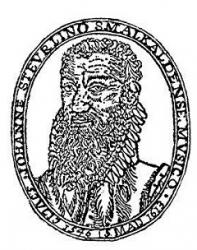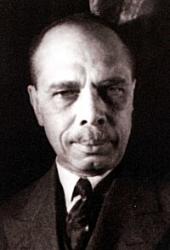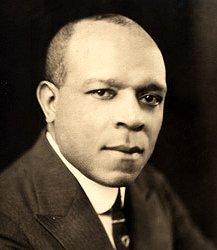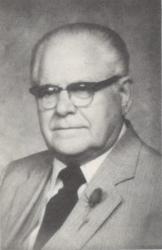Planning worship?
Check out our sister site, ZeteoSearch.org,
for 20+ additional resources related to your search.
- |
User Links
Person Results
John Fawcett

1740 - 1817 Scripture: Psalm 85:8 Author of "Thy Presence, Gracious God, Afford" in Church Hymnal, Mennonite An orphan at the age of twelve, John Fawcett (b. Lidget Green, Yorkshire, England, 1740; d. Hebden Bridge, Yorkshire, 1817) became apprenticed to a tailor and was largely self-educated. He was converted by the preaching of George Whitefield at the age of sixteen and began preaching soon thereafter. In 1765 Fawcett was called to a small, poor, Baptist country church in Wainsgate, Yorkshire. Seven years later he received a call from the large and influential Carter's Lane Church in London, England. Fawcett accepted the call and preached his farewell sermon. The day of departure came, and his family's belongings were loaded on carts, but the distraught congregation begged him to stay. In Singers and Songs of the Church (1869), Josiah Miller tells the story associated with this text:
This favorite hymn is said to have been written in 1772, to commemorate the determination of its author to remain with his attached people at Wainsgate. The farewell sermon was preached, the wagons were loaded, when love and tears prevailed, and Dr. Fawcett sacrificed the attraction of a London pulpit to the affection of his poor but devoted flock.
Fawcett continued to serve in Wainsgate and in the nearby village of Hebden Bridge for the remainder of his active ministry.
Bert Polman
===============
Fawcett, John, D.D., was born Jan. 6, 1739 or 1740, at Lidget Green, near Bradford, Yorks. Converted at the age of sixteen under the ministry of G. Whitefield, he at first joined the Methodists, but three years later united with the Baptist Church at Bradford. Having begun to preach he was, in 1765, ordained Baptist minister at Wainsgate, near Hebden Bridge, Yorks. In 1772 he was invited to London, to succeed the celebrated Dr. J. Gill, as pastor of Carter's Lane; the invitation had been formally accepted, the farewell sermon at Wainsgate had been preached and the wagons loaded with his goods for removal, when the love and tears of his attached people prevailed and he decided to remain. In 1777 a new chapel was built for him at Hebden Bridge, and about the same time he opened a school at Brearley Hall, his place of residence. In 1793 he was invited to become President of the Baptist Academy at Bristol, but declined. In 1811 he received from America the degree of D.D., and died in 1817, at the age of 78. Dr. Fawcett was the author of a number of prose works on Practical Religion, several of which attained a large circulation. His poetical publications are:—
(1) Poetic Essays, 1767; (2) The Christian's Humble Plea, a Poem, in answer to Dr. Priestley against the Divinity of our Lord Jesus Christ, 1772; (3) Three hymns, in the Gospel Magazine, 1777; (4) The Death of Eumenio, a Divine Poem, 1779; (5) Another poem, suggested by the decease of a friend, The Reign of Death, 1780; and (6) Hymns adapted to the circumstances of Public Worship and Private Devotion, Leeds, G. Wright & Son. 1782. They are 166 in number, and were mostly composed to be sung after sermons by the author.
Whilst not attaining a high degree of excellence as poetry, they are "eminently spiritual and practical," and a number of them are found in all the Baptist and Congregational hymn-books that have appeared during the last 100 years. The best known of these are, “Infinite excellence is Thine;" "How precious is the Book divine;" "Thus far my God hath led me on;" "Religion is the chief concern;" "Blest be the tie that binds;" “I my Ebenezer raise;" and "Praise to Thee, Thou great Creator." These hymns, together with others by Fawcett, are annotated under their respective first lines. [Rev. W. R. Stevenson, M.A.]
In addition the following hymns, also by Fawcett, but of less importance, are in common use:
1. Behold the sin-atoning Lamb. Passiontide. No. 60 of his Hymns, 1782, in 7 stanzas of 4 lines. In several hymnals in Great Britain and America.
2. I my Ebenezer raise. Birthday. No. 102 of his Hymns, in 10 stanzas of 4 lines. Usually given in an abbreviated form.
3. Infinite excellence is Thine. Jesus the Desire of Nations. No. 42 of his Hymns, in 12 stanzas of 4 lines. In several hymn-books in Great Britain and America in an abridged form.
4. Jesus, the heavenly Lover, gave. Redemption in Christ. No. 10 of his Hymns, &c., 1782, in 7 stanzas of 4 lines, and headed, "The marriage between Christ and the Soul." In Snepp's Songs of Grace & Glory, 1872, it reads, “Jesus, the heavenly Bridegroom, gave," and stanza v. is omitted.
5. Lord, hast Thou made me know Thy ways? Perseverance. No. 122 of his Hymns, &c., 1782, in 8 stanza of 4 lines. In the Baptist Hymnal, 1879, No. 451, stanzas iv.-vii. are omitted.
6. 0 God, my Helper, ever near. New Year. No. 108 of his Hymns, &c., 1782, in 6 stanzas of 4 lines. The New Congregational Hymn Book, 1859-69 omits st. vi.
7. 0, my soul, what means this sadness? Sorrow turned to Joy. No. 111 of his Hymns, &c., 1782, in 5 stanzas of 6 lines, and based upon the words, "Why art Thou cast down, O my soul?" &c. It is in common use in America, and usually with the omission of stanza ii. as in Dr. Hatfield's Church Hymn Book, 1872.
8. Sinners, the voice of God regard. Invitation to Repentance. No. 63 of his Hymns, &c., 1782, in 7 stanzas of 4 lines on Isaiah lv. 7, "Let the wicked forsake his way," &c. It is in common use in America, but usually in an abbreviated form.
9. Thy presence, gracious God, afford. Before Sermon. No 165 in his Hymns, &c., in 4 stanzas of 4 lines, and a chorus of two lines. In Dr. Hatfield's Church Hymnbook, 1872, No. 126, the chorus is omitted. Fawcett has another hymn on the same subject (No. 79) and beginning, "Thy blessing, gracious God, afford," but this is not in common use.
10. Thy way, 0 God, is in the sea. Imperfect Knowledge of God. No. 66 in his Hymns, &c., 1782, in 7 stanzas of 4 lines on 1 Corinthians xiii. 9, "We know in part," &c. It is in several American collections, usually abbreviated, and sometimes as, "Thy way, O Lord, is in the sea." In this form it is in The Sabbath Hymn Book, 1858, &c.
11. With humble heart and tongue. Prayer for Guidance in Youth. No. 86 in his Hymns, &c., 1782, in 7 stanzas of 4 lines on Psalms cxix. 9. "Wherewith shall a young man cleanse his way." It is No. 954 in the Baptist Psalms and Hymns, 1858-80.
About 20 of Fawcett's hymns are thus still in common use. Two hymns which have been ascribed to him from time to time, but concerning which there are some doubts, are fully annotated under their respective first lines. These are," Humble souls that seek salvation," and "Lord, dismiss us with Thy blessing."
-- John Julian, Dictionary of Hymnology (1907)
John Fawcett
Henry Baker
1835 - 1910 Scripture: Psalm 85:8 Composer of "QUEBEC" in Church Hymnal, Mennonite Henry Baker, Mus. Bac., son of the Rev. James Baker, Chancellor of the diocese of Durham; born at Nuneham, Oxfordshire; educated at Winchester School; graduated Bachelor in Music at the University of Oxford in 1867. He also worked as a civil engineer.
Scottish Church Music, its composers and sources by James Love; William Blackwwod and Sons, Edinburgh and London, 1891
Henry Baker
Johann Steuerlein

1546 - 1613 Person Name: Johann Steurlein Scripture: Psalm 85:11-12 Composer of "WIE LIEBLICH IST DER MAIEN" in Voices Together Johann Steuerlein (b. Schmalkalden, Thuringia, Germany, 1546; d. Meiningen, Germany, 1613) studied law at the University of Wittenberg. From 1569 to 1589 he lived in Wasungen near Meiningen, where he served as town clerk as well as cantor and organist in the Lutheran church. From 1589 until his death he lived in Meiningen, where at various times he served as notary public, mayor, and secretary to the Elector of Saxony. A gifted poet and musician, Steurlein rhymed both the Old and New Testaments in German. A number of his hymn tunes and harmonizations were published in Geistliche Lieder (1575) and Sieben und Zwantzig Neue Geistliche Gesenge (1588).
Bert Polman
Johann Steuerlein
Louis Bourgeois
1510 - 1561 Scripture: Psalm 85 Composer or Arranger of "OLD 107TH" in The Book of Common Praise Louis Bourgeois (b. Paris, France, c. 1510; d. Paris, 1561). In both his early and later years Bourgeois wrote French songs to entertain the rich, but in the history of church music he is known especially for his contribution to the Genevan Psalter. Apparently moving to Geneva in 1541, the same year John Calvin returned to Geneva from Strasbourg, Bourgeois served as cantor and master of the choristers at both St. Pierre and St. Gervais, which is to say he was music director there under the pastoral leadership of Calvin. Bourgeois used the choristers to teach the new psalm tunes to the congregation.
The extent of Bourgeois's involvement in the Genevan Psalter is a matter of scholarly debate. Calvin had published several partial psalters, including one in Strasbourg in 1539 and another in Geneva in 1542, with melodies by unknown composers. In 1551 another French psalter appeared in Geneva, Eighty-three Psalms of David, with texts by Marot and de Beze, and with most of the melodies by Bourgeois, who supplied thirty four original tunes and thirty-six revisions of older tunes. This edition was republished repeatedly, and later Bourgeois's tunes were incorporated into the complete Genevan Psalter (1562). However, his revision of some older tunes was not uniformly appreciated by those who were familiar with the original versions; he was actually imprisoned overnight for some of his musical arrangements but freed after Calvin's intervention. In addition to his contribution to the 1551 Psalter, Bourgeois produced a four-part harmonization of fifty psalms, published in Lyons (1547, enlarged 1554), and wrote a textbook on singing and sight-reading, La Droit Chemin de Musique (1550). He left Geneva in 1552 and lived in Lyons and Paris for the remainder of his life.
Bert Polman
Louis Bourgeois
James Weldon Johnson

1871 - 1938 Person Name: James W. Johnson, 1871-1938 Scripture: Psalm 85:2-8 Author of "Lift Every Voice and Sing" in Lead Me, Guide Me (2nd ed.) James Weldon Johnson MA PhD USA 1871-1938. Born at Jacksonville, FL, he attended Clark University, Atlanta, GA, and also spent three months in the backwoods of Georgia., taking in the culture there. While in school he published a paper, ”The daily American newspaper”, which ran for a year until terminated for lack of funding. He graduated in 1894. He then taught at the largest school in Jacksonville, FL, eventually becoming principal and adding 9th & 10th grades there. While there he began preparing for the FL bar exam, taking it in 1897. In 1904 he became treasurer of the Colored Republican Club, becoming its president the following year. He became an author, activist, educator, lawyer, and diplomat. A musician from youth, he collaborated with his brother, Rosamond, also a musician, and Bob Cole to write Broadway songs, and they achieved some success. They also wrote an opera, “Tolosa”, satirizing the U.S. annexation of the Pacific islands. He became a writer and Civil Rights activist. He did the editorial page of the New York Age, an African-American newspaper. In 1916 he became active in the NAACP, and in 1917 he added many chapters to its southern membership. He was its executive secretary (essentially its operating officer) from 1920-1930. He was involved in the campaign to pass the Dyer Anti-lynching Bill. He wrote poems, novels, and anthologies, and collected poems and spirituals from black culture. He wrote the lyrics to the Negro National Anthem, “Lift every voice and sing”, in honor of Booker T Washington, who visited his school and heard the poem recited by 500 school children in his presence, paying tribute to Abraham Lincoln’s birthday. He participated in Theodore Roosevelt’s successful presidential campaign, and was rewarded by receiving an appointment as U.S. Consul to Venezuela (1906-1909), and later to Nicaragua (1909-1913). He married activist,Grace Elizabeth Nail during this period. They had collaborated on a screenwriting project. They had no children. In 1930, after years leading the NAACP, he became professor of creative literature and writing at Fisk University ( a historically black university), Nashville, TN, where he lectured on a wide range of issues. In 1934 he was the first African-American professor hired at New York University, where he taught several classes in literature and culture. He published four works: “Autobiography of an Ex-colored man” (1920) “The book of American negro poetry” (1922/1931), “God’s trombones” (1927), and “Along this way” (1933). In 1938 he supported efforts by Ignatz Waghalter, a Polish-Jewish composer who had escaped the Nazis in Germany, to establish a classical orchestra of African-American musicians. He perished at Wiscasset, ME, while on vacation when the car his wife was driving was hit by a train. She was severely injured, but recovered. More than 2000 people attended his funeral. Several universities named buildings or departments in his honor, as is a community library in St. Petersburg, FL. In 1988 a U.S, postage stamp was printed in his honor.
John Perry
James Weldon Johnson
J. Rosamond Johnson

1873 - 1954 Person Name: J. Rosamund Johnson, 1873-1954 Scripture: Psalm 85:2-8 Composer of "ANTHEM" in Lead Me, Guide Me (2nd ed.) John Rosamond Johnson USA 1873-1954. Born at Jacksonville, FL, brother of James Weldon Johnson, he was an important figure in black music. During the first part of the 20th century. With his brother and a partner, Bob Cole, he helped compose “The black national anthem”: “Lift every voice and sing”. He was a pianist, songwriter, producer, soldier, singer, and actor. He began playing the piano at age four, and he studied at the New England Conservatory and with Samuel Coleridge Taylor in London, England. By the turn of the century he was teaching school in the Jacksonville area. He was also music director at the Bethel Baptist Church there. He moved to New York City in 1900 and entered its musical life. With Bob Cole (and sometimes his brother) they created a vaudeville act, did songwriting, and produced several musicals. This lasted until Cole’s death in 1911. They also produced two musicals: “The shoo-fly regiment” (1907) and “The red moon” (1909), in which he did some acting as well. The shows were successful, but they lost money and returned to doing vaudeville. In 1912, he gave a piano “Concert of Negro Music” at Carnegie Hall. In 1912-13 he went to London and served as director of Oscar Hammerstein’s Grand Opera House. He also wrote music for a theatre review. Returning to the U.S. with his new wife, Nora Ethel Floyd, he was appointed as director of the New York Music School Settlement for Colored People, serving from 1914-1919. The Johnson’s had one son, Donald. When WW1 broke out, he received a commission as a 2nd Lt. In the 15th Regiment. After the war, he also helped his brother with some NAACP activities. He toured with his own groups, the Harlem Rounders and the Inimitable Five. In New York he met and worked with Oscar Hammerstein, who would help shape his career. He also performed in negro spiritual concerts in New York and Manhattan. He sang and played the part of a lawyer in the original production of “Porgy & Bess” (1935). In 1936 he served as music director for the musical, “Blackbirds”. He sang in the original production of Gershwin’s “Porgy & Bess”, taking roles in other dramatics as well. As an editor he collected important works of traditional African-American songs and compiled them, along with his brother, James: “The Book of American negro spirituals” (1925), and ‘The second Book of negro spirituals’ (1926). He also edited “Shoutsongs” (1936) and the folksong anthology “Rolling along in song” (1937). He co-produced 15 musicals. He continued composing songs and instructing young people in music, and serving as a theatre doctor for many plays until his death. He died in New York City. Six published collections.
John Perry
J. Rosamond Johnson
R. B. Y. Scott
1899 - 1987 Person Name: R. B. Y. Scott (1899-1987) Scripture: Psalm 85 Author of "O Day of God, Draw Nigh" in Common Praise (1998) Scott, Robert Balgarnie Young. (Toronto, Ontario, July 18, 1899--November 1, 1987). United Church. University of Toronto, B.A., 1922; M.A., 1924; Ph.D., 1928. Pastorate at Long Branch, Ont., 1926-1928; professor of Old Testament at Union College (Vancouver), 1928-1931; United Theological College (Montreal), 1931-1955; Princeton University, 1955-1968; also dean of divinity at McGill University (Montreal), 1945-1955. Published many translations of, and commentaries on, Old Testament material, as well as on the Dead Sea Scrolls. Most of his hymns date from his years in Montreal.
--Hugh D. McKellar, DNAH Archives
R. B. Y. Scott
Graham Kendrick

b. 1950 Person Name: Graham Kendrick (1950-) Scripture: Psalm 85 Author of "Lord, the Light of Your Love Is Shining" in Common Praise (1998) Graham Kendrick (b. England, August 2, 1950), the son of a Baptist minister in Northamptonshire, is one of the most prolific Christian singer-songwriters in the United Kingdom. He’s written music for over thirty years, and to date has released thirty-eight albums. He is best known for his songs “Shine, Jesus, Shine,” “Knowing You,” and “The Servant King.” Kendrick has received honorary doctorates in divinity from Brunel University and Wycliffe College. In 1987 he helped co-found the March for Jesus, which today is a global phenomenon in which Christians take their faith to the streets in a celebration of Christ. In 1995 Kendrick received a Dove Award for his international work, and he remains an active advocate for Compassion International, which is a Christian child sponsorship organization dedicated to the long-term development of children living in poverty around the world, and also is a contributor to CompassionArt, an organization with the aim of generating income from works of art to assist in the relief of suffering around the planet.
Laura de Jong
Graham Kendrick
Samuel Wesley

1766 - 1837 Person Name: S. Wesley, 1766-1837 Scripture: Psalm 85 Composer of "[Lord, thou hast been favourable unto thy land]" in The Hymnary for use in Baptist churches Samuel Wesley; b. Feb. 24, 1766, Bristol; d. Oct. 11, 1837, London; composer and organist. Son of Charles Wesley, grandson of Samuel Wesley, 1662-1735
Samuel Wesley
Palmer Wheeler

1905 - 1983 Person Name: Palmer E. Wheeler Scripture: Psalm 85:12-13 Arranger of "[I know the Lord will find a way for me]" in Praise for the Lord (Expanded Edition) In his mid-twenties, Palmer Esker Wheeler joined the first Stamps Quartet, singing for Victor Records. In his mid-thirties, he joined the Vaughan Quartet and sang in concerts and on the radio. He was known as "the golden tenor voice of gospel music." His songs were published by Stamps-Baxter and Vaughan Music. In his mid-thirties, he left quartet singing to teach at Freed-Hardeman College (Henderson, Tennessee). He led singing for many Churches of Christ congregations. He published Youth Melodies and Action Songs in 1952. His most popular songs included I Want To Go To Heaven When I Die, Have I Done The Best I Can, Tomorrow May Be Too Late, and We Will Never Be Sorry.
Source: Gospel Gems: A Collection of Songs by Palmer and Tommy Wheeler. - M. Lynn
Palmer Wheeler


 My Starred Hymns
My Starred Hymns


